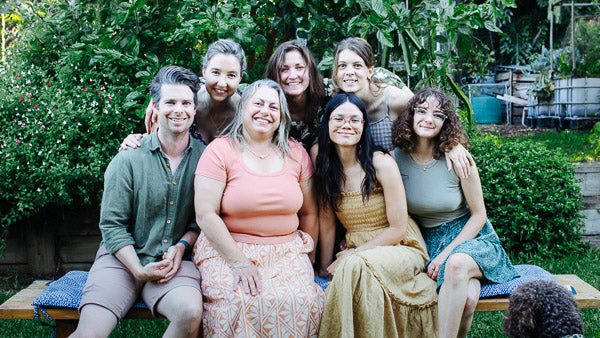Growing microgreens and sprouting are two of the easiest, fastest, most nutritious, and most rewarding things you could possibly grow at home. You may need a green thumb to grow fruits and vegetables but not for sprouts!
Speckled Pea Microgreens
- Sweet pea flavour.
- Tender, long stems with petite green leaves.
- A versatile green that can be used in a variety of dishes, including salads, sandwiches, raw food dishes or Asian stir-fries.
- High yield microgreen variety.
- 25 x 50cm growing tray yields approx. 450–900g of greens.
How to Grow Speckled Pea Microgreens:
- For Microgreens, grow in soil or cocopeat. A hydroponic method is not recommended for growing peas.
- Soak 250g of seeds in cold water for 4–8 hrs (for a 25 x 50cm growing tray).
- Cover with an ample amount of water as these seeds will double in size during the pre-soak stage.
- Sprout seeds for approx. 1–2 days with a sprouting jar or sprouting tray. Plant the seeds when they have sprouted a ‘tail’ that is approximately 2–3mm.
- The ideal growing temperature is 15–25degC. Avoid growing in extreme heat or cold conditions. In extreme heat, you may have issues with mould and slow germination.
- Add 2–3cm of soil or coir peat to your growing tray. Mix nutrients into your growing medium such as compost or vermiculite. Use a tray or small block of wood to flatten the soil. Lightly water. Sprinkle seeds evenly over the surface of the soil and ensure seeds don't overlap. Lightly water using a spray mist bottle.
- Cover your seeds with a growing tray and store in a well ventilated, cool, dark spot. Water 1–2 times daily.
- During the germination phase, seeds should not be exposed to light. Water 1–2 times daily. Keep covered for 2-3 days.
- Remove top tray and expose the microgreens to light. Water twice daily.
- Harvest time: Approximately 10–14 days.
Speckled Pea Seed Details:
- Botanical name: Pisum sativum, var: Speckled Field Pea.
- Non-GMO.
- Australian grown.
- Open-pollinated.
- No chemical treatment.
- Seeds per gram: 5-8.
Health Benefits of Microgreens and Sprouts
- Incredibly nutrient dense and low in calories. One study found that "some microgreens contain up to 40 times higher levels of vital nutrients than their mature counterparts" [1].
- Makes seeds easier to digest.
- Essential minerals and nutrients contained within the seeds/legumes become more bioavailable after sprouting (i.e. the nutrients become easier for your body to absorb and use).
- Delicious addition to a salad, sandwich, smoothie or other meal. Add a crunch or a peppery zing depending on the type you choose (see a list of different microgreens/sprouts and their tastes here).
What's the Difference Between Microgreens and Sprouts?
Both microgreens and sprouts are the young shoots of germinated seeds - essentially baby plants. You can grow grains, legumes, nuts and seeds as sprouts or microgreens and people are now fully realising the benefits of eating these young plants.
Sprouts are not grown in soil or other growing medium but rather are germinated with only water, usually in a jar, in a sprouting bag, or on a paper towel. They do not need light but require rinsing/misting at least twice per day, are ready to eat in 3-5 days and both the seed and plant are consumed.
Microgreens are grown in soil, a hydroponic growing pad or another growing medium such as cocopeat. They require light, are usually ready to eat in 5-15 days depending on what you're growing, and are generally cut off above the soil so only the stems and leaves are consumed.
For further information see our article - 5 Ways To Grow Microgreens and Sprouts
How to Store Microgreen and Sprouting Seeds
Store seeds in a cool, dry place (under 10°C) or in an airtight container in the fridge. Do not expose to moisture or direct sunlight. Grains, cereals & pulses should be refrigerated.
*** Due to quarantine restrictions we are unable to send seeds to Tasmania or South Australia***


